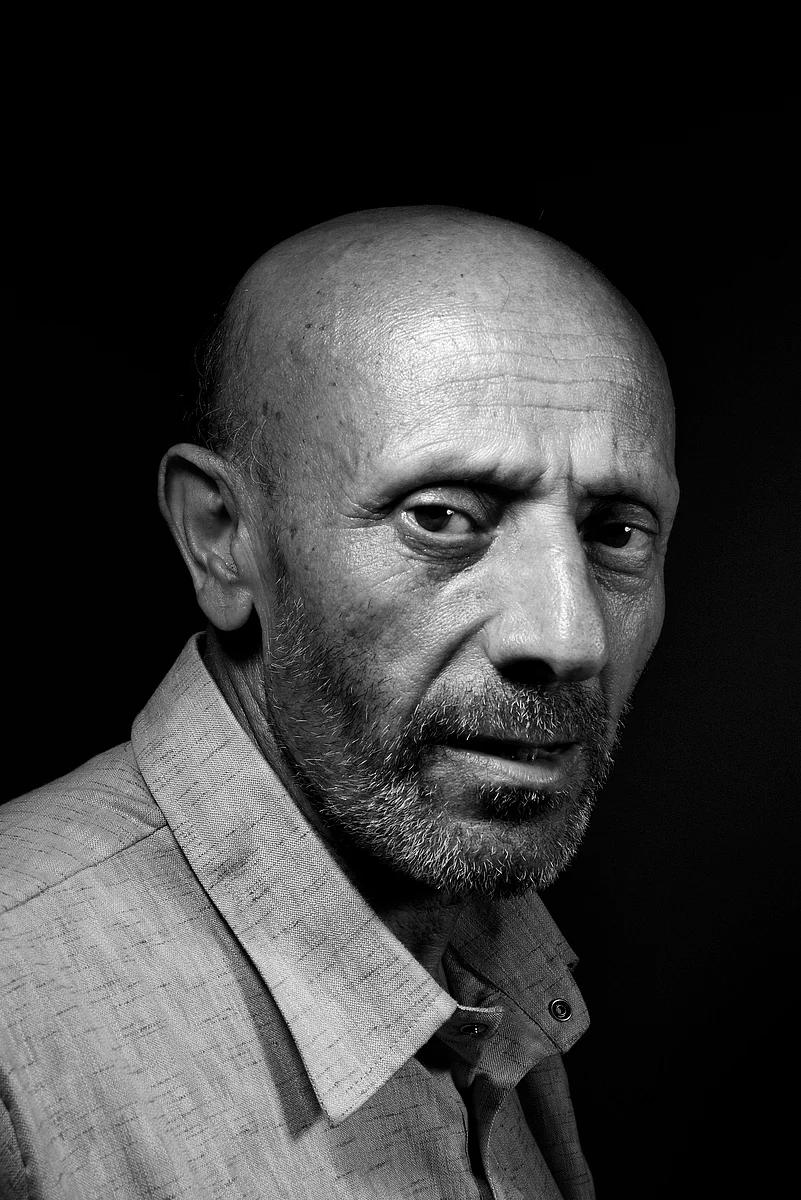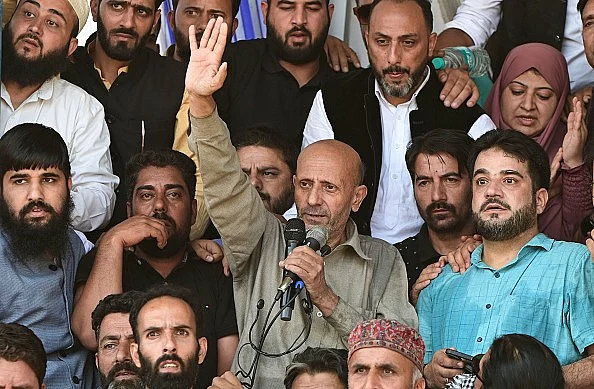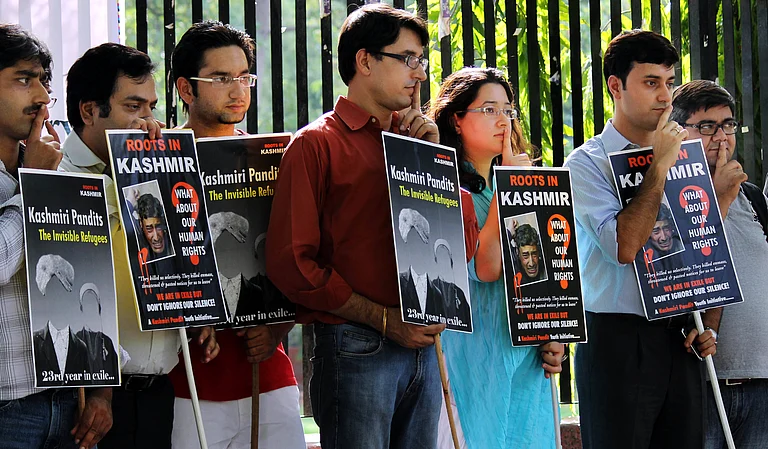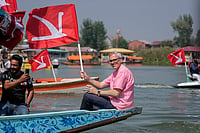The recent parliamentary election in Kashmir sent ripples across the political landscape of the region and the nation. An incarcerated politician emerged victorious, a development that carries profound implications for the future of Kashmir's politics and its delicate relationship with the rest of India.
This win is seen by many as a triumph of a new electorate, a clear rejection of the entrenched dynastic politics that have long dominated the region. However, there is also growing concern that this victory might reignite secessionist sentiments that have been simmering under the surface since the revocation of Kashmir’s semi-autonomous status in 2019.
Triumph of a New Electorate
The victory of Abdul Rashid Sheikh, known as Engineer Rashid, even while incarcerated, is a remarkable testament to the changing political dynamics in Kashmir. It reflects a populace increasingly disillusioned with the traditional political elite who have often been perceived as self-serving and disconnected from the grassroots.
The dynastic politics of Kashmir, dominated by a few prominent families for decades, have faced growing scrutiny and criticism for failing to deliver on the promises of development and representation. This election outcome is a resounding statement from the people, signalling a desire for change and a new direction. It underscores the emergence of a more politically aware and active electorate that is no longer willing to accept the status quo.
This shift could herald a more vibrant and participatory democracy in Kashmir, offering hope for more responsive and accountable governance. It is imperative that New Delhi must seize this opportunity and initiate a new political process. What is a must is that formal democracy should be restored in Kashmir by holding Assembly elections.
A New Political Integration
Journalist and author Pravin Swami’s views in an article expressing concern over a local politician's win in Kashmir potentially leading to secessionism and reviving dormant militancy reflects a contentious viewpoint.
While it's crucial to remain vigilant about security dynamics, this perspective may undermine the democratic process and popular mandate in Kashmir. The assertion that the triumph of a figure ostensibly aligned with the cause of enhanced autonomy, or even outright secession, might invigorate separatist factions and rekindle the quest for self-determination, rests on a speculative premise.
The resounding victory of Engineer Rashid serves as a profound testament to the populace's conviction in the transformative potential of an authentic democratic process. This electoral triumph is emblematic of a collective aspiration for a governance paradigm that not only addresses social injustices but also aligns with the intricate aspirations and grievances of the citizenry.
It underscores the pivotal role of democratic mechanisms as instruments of social engineering, capable of orchestrating substantive change and fostering a milieu where justice and equity prevail. The electorate's endorsement of Engineer Rashid is, therefore, not merely a political statement, but a clarion call for a rejuvenated socio-political order grounded in the principles of accountability, transparency, and inclusivity.

Implications for Assembly Elections
The repercussions of the parliamentary election are likely to be felt in assembly elections. The victory of an incarcerated politician could galvanise support for candidates who advocate greater autonomy or who are seen as champions of Kashmiri identity and rights. This might lead to a shift in the political landscape at the local level, where traditionally dominant parties could find themselves outflanked by new or reinvigorated players with a more populist or nationalist agenda.
For the central government, this development necessitates a careful recalibration of its approach to Kashmir. It underscores the need for a more nuanced and inclusive policy that addresses the aspirations and grievances of the Kashmiri people by recognising the fact that Kashmiri people, like others in mainland India, should live a dignified life. This could involve greater political engagement, dialogue, and efforts to foster economic development and social cohesion in the region. The intricate dynamics of governance in Kashmir demand an acute sensitivity to the region's historical and cultural nuances.
The populace's aversion to administration by a lieutenant governor and an alienated bureaucracy underscores their yearning for governance by democratically elected local representatives. Such representatives, being in close proximity to the populace, possess an inherent understanding of the region's unique aspirations and preferences.
The abrogation of Article 370 in August 2019, which rescinded the region’s semi-autonomous status, has exacerbated the discord between Kashmir and the Union. This act, perceived by many as a draconian imposition, has relegated the relationship to a state of profound disrepair. To rectify this, a paradigmatic shift is imperative—one that reinstates local governance and realigns the region's affiliation with the Union on more equitable and empathetic terms.
The Path Forward
The road ahead for Kashmir is fraught with challenges, but it also offers opportunities for positive change. The emergence of a new electorate and the rejection of dynastic politics signal a desire for a more democratic and participatory political process. This can be a catalyst for constructive engagement and meaningful reform, provided it is handled with the requisite political acumen and sensitivity. There's an uneasy calm in Kashmir and New Delhi must be sensitive to ensure that it should be permanent by recognising that only a genuine democratic exercise and a free, fair and regular election can establish such a permanent peace.
The governance of union territories under central authority is a standard protocol within the Indian administrative framework, designed to ensure uniformity and direct oversight. However, the situation in Kashmir is distinguished by a confluence of unique socio-political factors and historical antecedents. For centuries, the region has been imbued with a deeply entrenched sense of autonomy, fostering a distinctive political consciousness among its populace.
Restoring statehood to Kashmir is not merely an administrative adjustment but a sine qua non for any meaningful peace process in the region. The abrogation of its special status and subsequent downgrading to a union territory have engendered widespread disillusionment, exacerbating existing tensions. The reestablishment of statehood is imperative to provide the Kashmiri people with a semblance of dignity, predicated on the principles of the rule of law and the reinstatement of robust democratic institutions.
By reinstating statehood, the central government would signal a commitment to addressing the grievances of the Kashmiri populace, fostering an environment conducive to dialogue and reconciliation. It is through this prism of dignified governance and democratic restoration that sustainable peace and stability can be envisioned for the region.
The recent Lok Sabha election in Kashmir has opened a new chapter in the region's complex political narrative. It presents both opportunities and challenges that will shape the future of Kashmir and its relationship with the rest of the country. The assembly elections will be a critical test of whether the region can move towards a more inclusive and democratic future or whether it will slide back into the cycle of conflict and unrest that has plagued it for so long. The eyes of the nation, and indeed the world, will be on Kashmir as it navigates this pivotal moment in its history.
(Views expressed are personal)



























